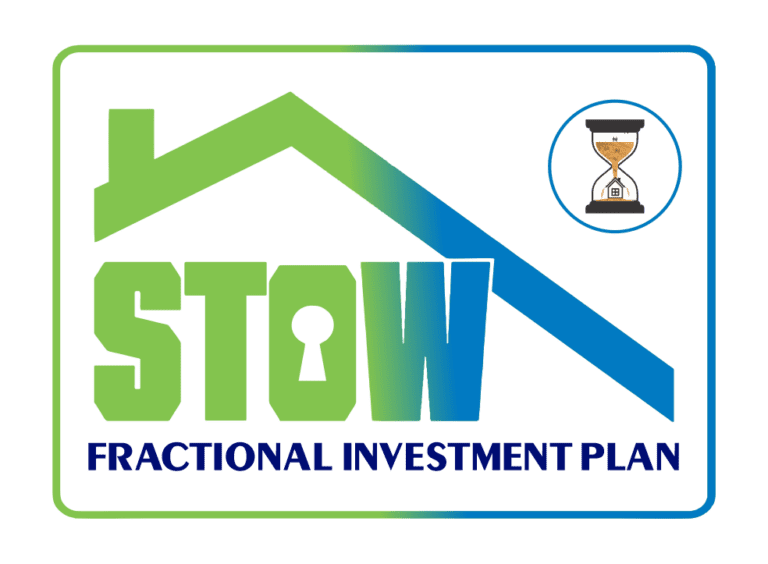Ways to create passive income in real estate in Nigeria
Umaru Hassan
Creating passive income is a crucial goal for many individuals seeking financial freedom and long-term wealth. Among the various avenues available, real estate stands out as a viable option due to its potential for steady cash flow and appreciation. In Nigeria, a country with a thriving real estate market, there are numerous opportunities to generate passive income. This blog post will explore different strategies and approaches to help you create passive income in real estate in Nigeria.
Before we delve into ways to create passive income in real estate in Nigeria, let’s provide you with a quick outline. You can click on any of the topics below to be taken directly to the corresponding section:
What is Passive Income in Real Estate?
Passive income in real estate refers to the earnings generated from real estate investments with minimal effort or active involvement on the investor’s part. Unlike traditional employment or active business ventures, where income is typically tied to the hours worked, passive income in real estate allows individuals to earn money continuously, even when they’re not actively working.
Strategies for Generating Passive Income in Real Estate in Nigeria
The concept of passive income in real estate revolves around leveraging properties or real estate assets to generate consistent cash flow. This income can be derived from various sources, such as:
- Rental Properties
- Real Estate Investment Trusts (REITs)
- Real Estate Development and Flipping
- Shortlet Apartments
- Co-investing and Crowdfunding
- Fractional Home Investment
1. Rental Properties
Rental properties are a popular avenue for generating passive income. To succeed in this strategy, it is important to:
- Choose the Right Location for Rental Properties: Identify areas with high rental demand, good infrastructure, and potential for future growth.
- Assess Rental Demand and Pricing: Conduct thorough market research to understand rental rates, occupancy rates, and rental market trends.
- Property Management and Tenant Screening: Ensure smooth operations and minimize risks by implementing robust property management systems and conducting thorough tenant screening in your real estate ventures.
- Tax Implications for Rental Income in Nigeria: Familiarize yourself with the tax laws and regulations related to rental income and comply with the reporting obligations.
Related: Top 15 Locations for Real Estate Investment in Lagos
2. Real Estate Investment Trusts
REITs offer a passive investment option for individuals looking to diversify their real estate portfolio. Consider the following when investing in REITs:
- Exploring the Basics of REITs: Understand the structure and functioning of REITs, which pool funds from multiple investors to invest in income-generating real estate assets.
- Benefits and Risks of Investing in REITs: Evaluate the potential benefits of regular dividends, liquidity, and exposure to diverse real estate sectors, as well as the risks associated with market fluctuations and management decisions.
- Analyzing Promising REITs in the Nigerian Market: Research reputable REITs operating in Nigeria and assess their performance, portfolio composition, and track record before making investment decisions.
Related: Top 3 Real Estate Investment Trusts In Nigeria
3. Real Estate Development and Flipping
Real Estate Development and Flipping also known as Property Development and Renovation, refers to the process of acquiring properties, improving their condition through renovations or repairs, and then reselling them for a profit. It can be profitable if executed strategically. Consider the following steps:
- Identifying Profitable Development Opportunities: Conduct thorough market research to identify areas with high demand and potential for property development.
- Assessing Risks and Challenges in Real Estate Development: Evaluate regulatory requirements, construction costs, project timelines, and potential hurdles.
- Implementing Effective House Flipping Strategies: Acquire distressed properties at a favourable price, renovate them to increase their value, and sell them for a profit.
Related: Risks associated with investing in real estate in Nigeria and mitigations
4. Shortlet Apartments
With Nigeria’s growing tourism industry, short-let apartments present an attractive opportunity. Consider the following:
- Evaluating the Potential of Short-term Rentals in Nigeria: Research popular tourist destinations, assess rental demand and evaluate the competition.
- Choosing the Right Platforms for Vacation Rental Listings: Utilize platforms such as Airbnb, Booking.com, or local vacation rental websites to reach a wide range of potential guests.
- Creating Memorable Guest Experiences for Repeat Business: Provide exceptional customer service, maintain high cleanliness standards, and offer unique amenities to ensure positive guest experiences and garner favourable reviews.
5. Co-investing and Crowdfunding
Co-investing and crowdfunding platforms provide avenues for shared real estate investments. Consider the following:
- Collaborative Investment Models in Nigerian Real Estate: Explore co-investment and crowdfunding platforms that allow individuals to pool their resources and invest in real estate projects collectively.
- Selecting Reliable Co-investment and Crowdfunding Platforms: Research and choose reputable platforms that offer transparent investment opportunities, thorough due diligence, and investor protection.
- Mitigating Risks and Maximizing Returns in Co-investing: Evaluate the risks associated with co-investing, carefully analyse investment opportunities, and diversify your portfolio to reduce potential risks.
Related: The Top 9 Real Estate Investment Apps in Nigeria
10 best free property listing websites in Nigeria
5 Nigerian Real Estate Investment Blogs to Help You Build Your Wealth
6. Fractional Home Investment

Fractional real estate investing involves buying a small percentage of ownership in a property with other investors. This allows investors to pool their resources and invest in properties that would otherwise be too expensive to purchase outright. To get started, consider the STOW Fractional Home Investment Plan
- The STOW Fractional Home Plan simplifies and reduces the cost of investing in select real estate properties and delivers guaranteed returns and capital gains on investment within a defined time period.
- The STOW Fractional Home Investment Plan provides a 10% annualized yield and a guaranteed 10% – 20% capital gain between two (2) – four (4) years on select properties.
- Begin your journey towards earning passive income in the Nigerian real estate market by clicking here to get started.
Financial Planning and Risk Management to Create Passive Income in Real Estate in Nigeria
To build a successful passive income stream in Nigerian real estate, effective financial planning and risk management are essential. Consider the following steps:
- Setting Realistic Financial Goals and Objectives: Define your financial goals, whether it’s generating a specific monthly income or building long-term wealth, and establish a plan to achieve them.
- Calculating Potential Returns on Investment (ROI): Conduct a thorough financial analysis to assess the profitability of different investment opportunities, considering factors such as rental income, property appreciation, and expenses.
- Diversification Strategies to Mitigate Risk: Spread your investments across different types of properties, locations, and strategies to reduce risk and protect your portfolio from market fluctuations.
Related: How to calculate the ROI of a real estate investment
How to diversify your real estate portfolio
All you need to know about an investment portfolio

[…] Ways to create passive income in real estate in Nigeria […]
[…] Ways to create passive income in real estate in Nigeria […]
[…] Ways to create passive income in real estate in Nigeria […]
[…] Ways to create passive income in real estate in Nigeria […]
[…] Ways to create passive income in real estate in Nigeria […]